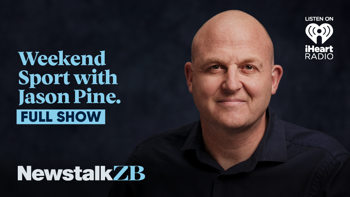The Government is hoping for progress down the track in the burgeoning dispute between junior doctors and their employers.
Around 3000 junior doctors are due to strike for 48 hours from today following a breakdown in contract talks with District Health Boards over their work conditions.
LISTEN ABOVE: Tom Reynolds, Resident Doctor at Rotorua Hospital, speaks to Rachel Smalley about the strike
Minister of Health Jonathan Coleman said he can assure the public that life preserving services are in place and DHBs have worked hard to ensure this is the case.
"We just want to work through this 48 hour strike. Then I am very keen to see that negotiators on both sides of the dispute are back at the table and talking constructively."
Mr Coleman said their hours vary from run to run, but on average junior doctors work around 53 hours a week.
READ MORE: Regional impacts of doctor strike
And he's standing by the current system junior doctors are working in.
"I think we've got a very good system for training our junior doctors in this country."
"But of course every time there's a negotiation it's timely to look at conditions and make sure that those are inline with what we'd expect in this day and age."
Ian Powell, speaking on behalf of senior doctors stepping in during strike, says DHB Chief Executives aren't negotiating fair compensation for additional emergency work on the cards for those filling in.
"Chief Executives know full well that senior doctors will continue to provide this extra care, go through this extra stress and pressure for their patients."
"The Chief Executives are - for the first time - taking advantage of that."
It is understood senior doctors want $340 dollars an hour for regular duties, and $568 dollars an hour for extra work, on top of their base salary.
The Capital and Coast District Health Board said patient wellbeing remains its priority during the strike.
The health board said its emergency department will stay open during the strike.
Essential services will be prioritised and some outpatients and elective surgeries will have to be rescheduled.
It said patient safety and wellbeing remains the highest priority during the strike.
The health board will get in touch with patients this week if they are affected.
Inpatients are also being assessed to see whether they can be discharged but if not, they will keep their beds.
Why are Junior Doctors on strike?
Just over 3,200 out of New Zealand's 3,500 resident doctors will take strike action for 48 hours starting at seven this morning.
The New Zealand Residential Doctors Association said its a dispute over consecutive days worked.
Lead Chief Executive for Employment Relations of New Zealand's 20 DHBs Julie Patterson said it has already agreed to fewer days worked in a row, and has offered a pay rise of five percent over three years.
"So at the moment on average junior doctors work 53 hours a week and they earn somewhere between $90,000 and $120,000, so it's a five percent increase on that."
But the New Zealand Residential Doctors Association said it didn't request more money.
The association said the comment is a red-herring from DHBs to distract form a health and safety matter where staff are not getting the adequate time to rest up for their next shift.
Association national secretary Dr Deborah Powell said the increase that's been offered was part of a Consumer Price Index adjustment to match inflation that health workers receive in due course anyway.
She said they're not after a pay rise, and a commitment to fewer hours from DHBs isn't enough - they want it to be a contractual obligation.
"We've been working on this for four years now and had only limited success so at this point and time we want a contractual obligation that these hours will drop."
However Julie Patterson said if they contractually commit to no more than ten consecutive days work, junior doctors will end up being paid for two days they don't actually work because of a clause in their contract, and how hours are calculated in that clause.
"All 20 DHBs are concerned about the health and safety claims the union has made, we do not want fatigued workers, of course we don't, but we have to have some movement from the union in relation to the contract clause."
The association simply said that's not true.
"Resident doctors are on a salary, that salary is tied to the number of hours they work in a week on average, and it's done in five hourly blocks so they get a salary if they work between 55 and 60 hours, or between 60 and 65 hours a week.
"If their hours of work drop out side one of those five hour blocks then their salary drops along with it."
Take your Radio, Podcasts and Music with you









